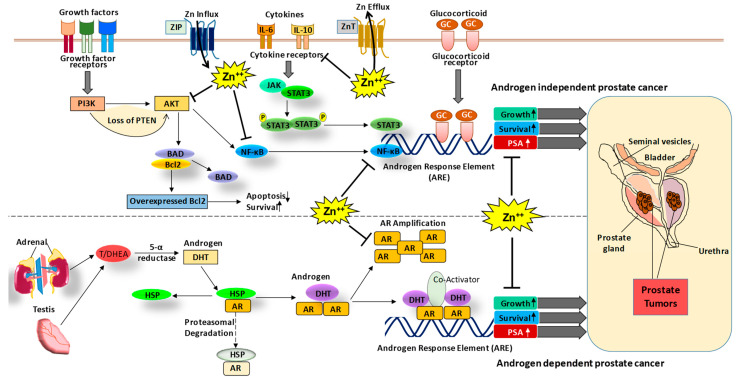Figure 1.
The role of Zn and associated signaling in PCa. The PCa can be progressed via androgen-dependent and independent signaling mechanisms. In the androgen-dependent pathway, testosterone hormone binds to the androgen receptor (AR), which leads to its dissociation from heat shock proteins (HSP) and enables its nuclear translocation and binding to the androgen response element (ARE) increasing the expression of growth and survival genes as well as PSA. In the androgen-independent mechanism, growth factor signaling, cytokines and glucocorticoid signaling activate cell proliferative pathways such as PI3K-AKT, NF-κB, and JAK-STAT, leading to an increase in expression of growth and survival genes as well as prostate-specific antigen (PSA) [17]. Interestingly, Zn is known to modulate AR and PSA [18] as well as other signaling molecules such as AKT [20] and NF-κB [21,22]. Thus, Zn modulating agents could be used in the prevention and/or treatment of PCa. DHT, dihydrotestosterone; T/ DHEA, testosterone/dehydroepiandrosterone.

